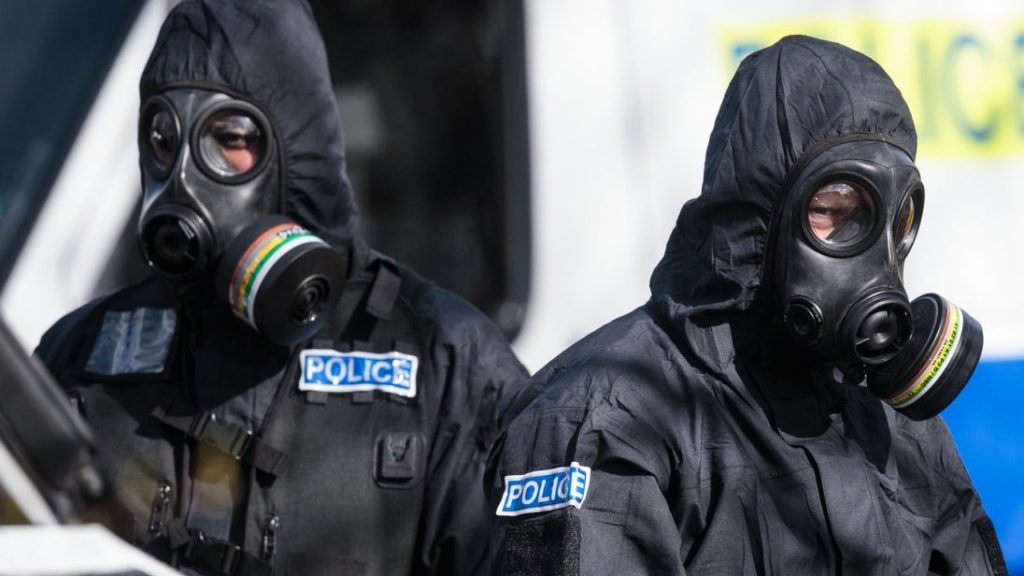Russia has denied involvement in the nerve agent attack on a former Russian spy and his daughter in Salisbury.
However, Sky News has spoken to a man who played a key role in the development of Soviet nerve agents – and the novichok programme.
Sky Correspondent John Sparks went to visit him.
Amongst the water-logged fields of southern Russia, there is a modest looking town with an unusual resident – a scientist who played a key role in the development of Soviet nerve agents.
His name is Vladimir Uglev and he told us he was willing to talk about his role in the novichok programme.
The 71-year-old retired scientist did not want to meet us at his home – instead we found him waiting at a bus stop just off the main highway and as he got in, he blamed us for the cold weather.
“You’ve got me frozen,” he grumbled.
But Mr Uglev was prepared to speak about his career at a secretive government laboratory in the region of Saratov.
“I worked there until 1993,” he said.
“The Americans asked me to keep on working and I was offered a job in the Russian government – but I declined.”
Later, at a quiet spot by the Black Sea, Mr Uglev told us he invented two of four substances that were later classified as novichok agents at a facility led by fellow scientist Pyotr Kirpichev.
“I was in the Kirpichev laboratory at the right time and the right place.
“Some people had worked there for dozens of years and didn’t achieve anything but in just three months I managed to create two of the most promising substances.”
The UK has blamed Russia for using one of the novichok substances to poison Sergei and Yulia Skripal in Salisbury earlier this month.
But a succession of senior Russian officials have denied the existence of any novichok programme in the Soviet Union and Russia.
I asked the former scientist how he felt about it.
“Then it means I don’t exist, I could disappear into thin air. I am standing here in front of you. For 15 years I worked on it. Not only on novichok – there were different projects, they were changing every year.”
Mr Uglev also has a problem with comments made by Vladimir Putin, just after he had won himself a commanding victory in last Sunday’s presidential election.
Responding to a journalist’s question about the Skripal affair, President Putin rubbished claims of Russian involvement.
If a “military-grade” nerve agent had been used in Salisbury he said, Sergei and Yulia Skripal would have died instantly.
But the former scientist told me that was silly – it depends how much liquid or powder (novichok agents were produced in both) is used.
“Sometimes the President is saying one thing, and I listen to him and I think ‘My God, who is telling you to say such nonsense’.
“In the eyes of the professionals and I say it gently but you look…” Mr Uglev did not finish the point.
He holds out little hope for the Skripals.
He knows what novichok can do because he has accidentally exposed himself to it “on two or three occasions”.
“You are overwhelmed with fear, it’s difficult to understand where it is coming from. You start to shake very strongly. My hands were still sweating a few years later.”
Mr Uglev thinks he is the last living member of the team who developed novichok in the Soviet Union and he told us that he is unwilling to deny a lifetime’s work.
From – SkyNews


